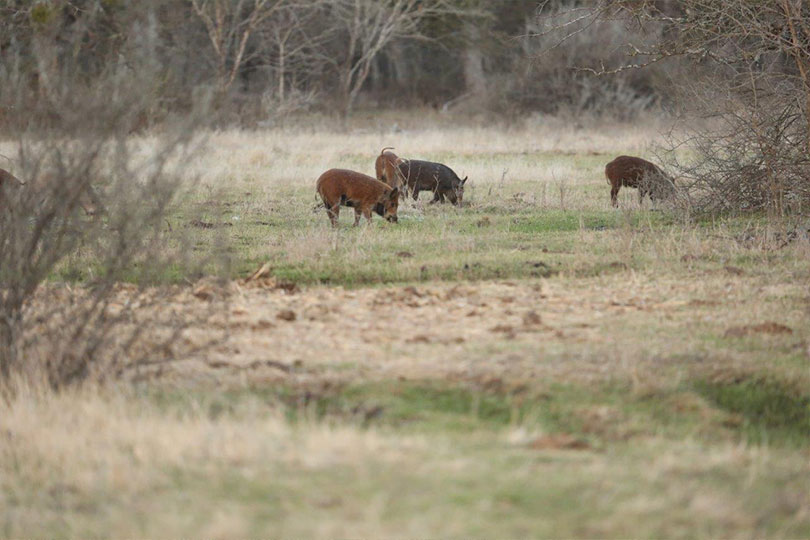By Jessica Domel
Multimedia Reporter
The Texas Parks and Wildlife Department (TPWD) is accepting comments on a proposal that would allow the use of unmanned aerial vehicles, commonly called drones, to locate feral hogs at night for hunters on the ground.
“To use aircraft for that purpose currently requires our permit provisions to comply with the federal Airborne Hunting Act,” Stormy King, TPWD assistant commander of wildlife enforcement, told the Parks and Wildlife Commission. “These rules, much like a lot of things related to drones, were all written years ago before drones were a thing. So, our current regulations, when they were written, were talking about helicopters mostly.”
The Airborne Hunting Act prohibits shooting, attempting to shoot or intentionally harassing birds, fish or other animals from aircraft except for certain specified reasons including protection of wildlife, livestock and human health.
TPWD has the statutory authority to regulate the use of aircraft, including helicopters and drones, to manage wildlife in Texas.
Under current state regulations, those with an aerial wildlife permit can use drones during the day to locate feral hogs for lethal control measures on the ground. Use of drones for that purpose is prohibited between 30 minutes after sunset to 30 minutes before sunrise.
The proposal, if adopted by the commission, would change that.
“Along with the popularity of drones, there has also been an increase in availability and affordability of thermal imaging equipment,” King said. “These cameras are very effective in locating wildlife and other heat sources for various purposes. The combination of the drone with the thermal imagery can be very effective specifically in the management of feral hogs.”
Feral swine cause millions of dollars in damages to crops, pastures, lawns, golf courses and cemeteries in Texas each year.
“Feral hogs are an extremely destructive nuisance species, causing great damage to agricultural crops and wildlife habitats across the state, and the department vigorously encourages the public to control feral hog populations in order to protect native wildlife and their habitats,” the proposal states.
While the proposal would allow the use of drones to locate feral swine, it would not allow people to use drones to hunt from a drone.
“Staff propose changes to the regulations that would allow the use of drones to locate feral hogs, to facilitate take by gunners on the ground to occur at night under the provisions of the aerial wildlife management permit,” King said. “The amendments would also clarify that the drone operator must be in possession of the permit while conducting permitting activity.”
The public can comment on the proposal through 5 p.m. Nov. 2.
The Texas Parks and Wildlife Commission is expected to discuss and consider the proposal at its meeting Nov. 2-3 in Austin.

